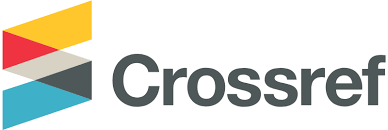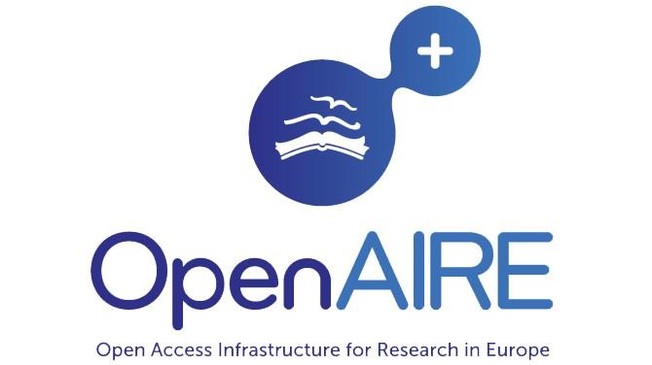PENERAPAN E-LEARNING BERBASIS (POQE) PREDICTION-OBSERVATION-QUIZ-EXPLANATION PADA KONSEP GLOBAL WARMING
DOI:
https://doi.org/10.21009/03.1201.PF25Abstract
Abstrak
Penelitian ini bertujuan untuk menghasilkan e-learning berbasis POQE berbantuan Microsoft Sway pada konsep global warming sebagai media bahan ajar yang efektif serta dapat diterapkan dalam pembelajaran fisika. E-learning disajikan dalam bentuk link sehingga dapat diakses melalui berbagai macam perangkat elektronik kapan dan dimana saja. Komponen e-learning terdiri dari, capaian pembelajaran, alur tujuan pembelajaran, indikator POQE, peta konsep, materi, informasi teknologi, soal pre-test, quiz, video dan form serta pelengkap lainnya. Studi pendahuluan yang telah dilakukan ke sejumlah siswa SMA, sebanyak 77,3% menyatakan bahwa penggunaan internet lebih sering digunakan sebagai sumber belajar. Studi ini mengusulkan model inkuiri "prediction-observation-quiz-explanation" (POQE) untuk merancang program pembelajaran global warming. Penelitian ini menggunakan metode penelitian Research and Development dengan model 4D (Define, Design, Development, Disseminate). Dalam penelitian ini digunakan D'Cohen Formula untuk mengukur efektifitas dari e-learning dan validasi media serta materi menggunakan Model Rasch dengan pengolahan data berbantuan aplikasi Ministep. Penelitian yang dilakukan masih dalam proses dan terus berlanjut.
Kata-kata kunci: e-learning, inkuiri POQE, global warming.
Abstract
This study aims to produce POQE-based e-learning assisted by Microsoft Sway on the concept of global warming as an effective teaching material that can be applied to physics learning. E-learning is presented in the form of a link so that it can be accessed via a variety of electronic devices anytime and anywhere. The e-learning component consists of learning outcomes, learning objectives flow, POQE indicators, concept maps, materials, information technology, pre-test questions, quizzes, videos and other forms and supplements. Preliminary studies that have been conducted on a number of high school students, as much as 77.3% stated that the use of the internet is more often used as a learning resource. This study proposes a "prediction-observation-quiz-explanation" (POQE) inquiry model to design a global warming learning program. This study uses the Research and Development research method with the 4D model (Define, Design, Development, Disseminate). In this study, the D'Cohen Formula was used to measure the effectiveness of e-learning and media and material validation using the Rasch Model with data processing assisted by the Ministep application. Research conducted is still in process and continues.
Keywords: e-learning, POQE inquiry, global warming.
References
[2] C. Chen, “Augmented Reality and Competition in Robotics Education: Effects On 21st Century Competencies, Group Collaboration and Learning Motivation,” Journal of computer assisted learning, vol. 36, no. 6, pp. 1052-1062, 2020.
[3] H. Zurqoni, “Strategy and Implementation of Character Education in Senior High Schools and Vocational High Schools,” Journal of Social Studies Education Research, vol. 9, no. 3, pp. 370-397, 2018.
[4] E. Halsey, “Independent Review Into Regional Rural and Remote Education-Final Report,” Australia: The Department of Education and Training (Department) for the purpose of disseminating information to the public, 2018.
[5] H. Care, “Education System Alignment for 21st Century Skills: Focus On Assessment,” Center for Universal Education at The Brookings Institution, 2018.
[6] B. Meehan, “Global Climate Change in U.S. High School Curricula: Portrayals of The Causes, Consequences, and Potential Responses,” Journal Science Education, vol. 102, no. 3, pp. 498-528, 2018.
[7] Y. Efriani, “Development Mathematics Teaching Materials Based on Sway 365 for Student Class IV School Basics - Practicality,” Budapest International Research and Critics Institute-Journal (BIRCI-Journal), vol. 5, no. 2, pp. 11472-11479, 2022.
[8] J. Hong, “The Effect of The ‘Prediction-Observation-Quiz-Explanation’ Inquiry-Based E-Learning Model on Flow Experience in Green Energy Learning,” Journal Computer and Education, vol. 133, pp. 127-138, 2019.
[9] O. Uner, L. Henry, “The Effect of Question Placement on Learning from Textbook Chapters,” Journal of Applied Research in Memory and Cognition, vol. 7, no. 1, pp. 116-122, 2018.
[10] J. Blunt, “Learning With Retrieval-Based Concept Mapping,” Journal of Educational Psychology, vol. 106, no. 3, pp. 849-858, 2014.
[11] G. F. Sanjuan, S. Jaen, “Evaluating A Tactile and A Tangible Multi-Tablet Gamified Quiz System for Collaborative Learning in Primary Education,” Journal Computer and Education, vol. 123, pp. 65-84, 2018.
[12] D. Lakens, “Calculating and Reporting Effect Sizes to Facilitate Cumulative Science: A Practical Primer for T-Tests and ANOVAs,” Journal Frontiers Psychology, vol. 4, pp. 9-11, 2013.
[13] L. Cohen, L. Manion, K. Morrison, “Research Methods in education,” Routledge, 2018.




